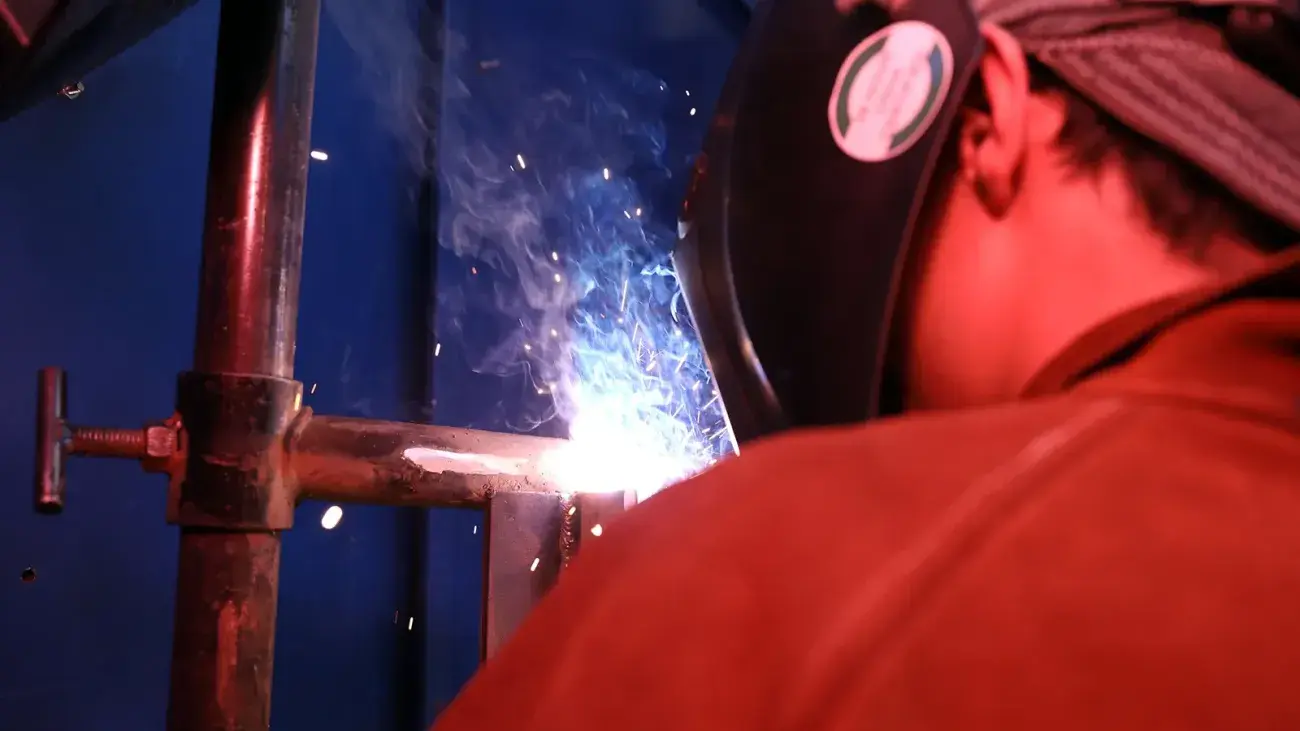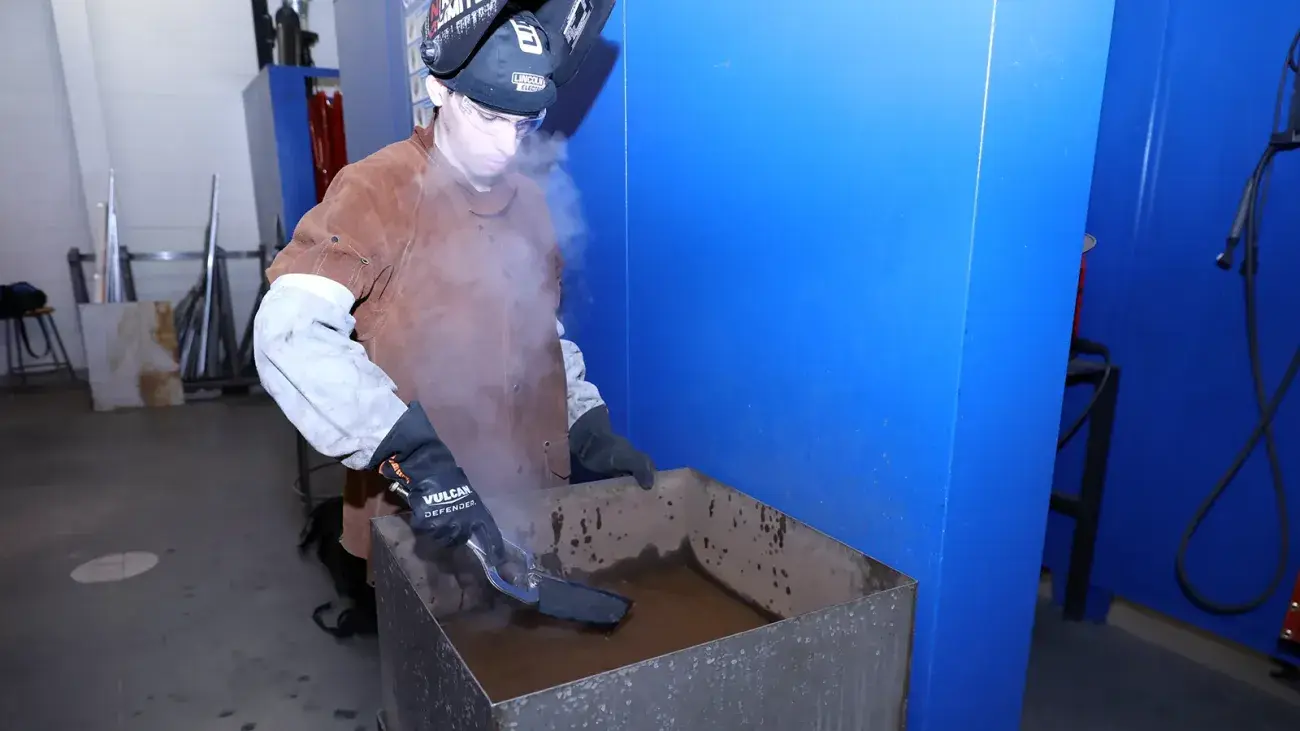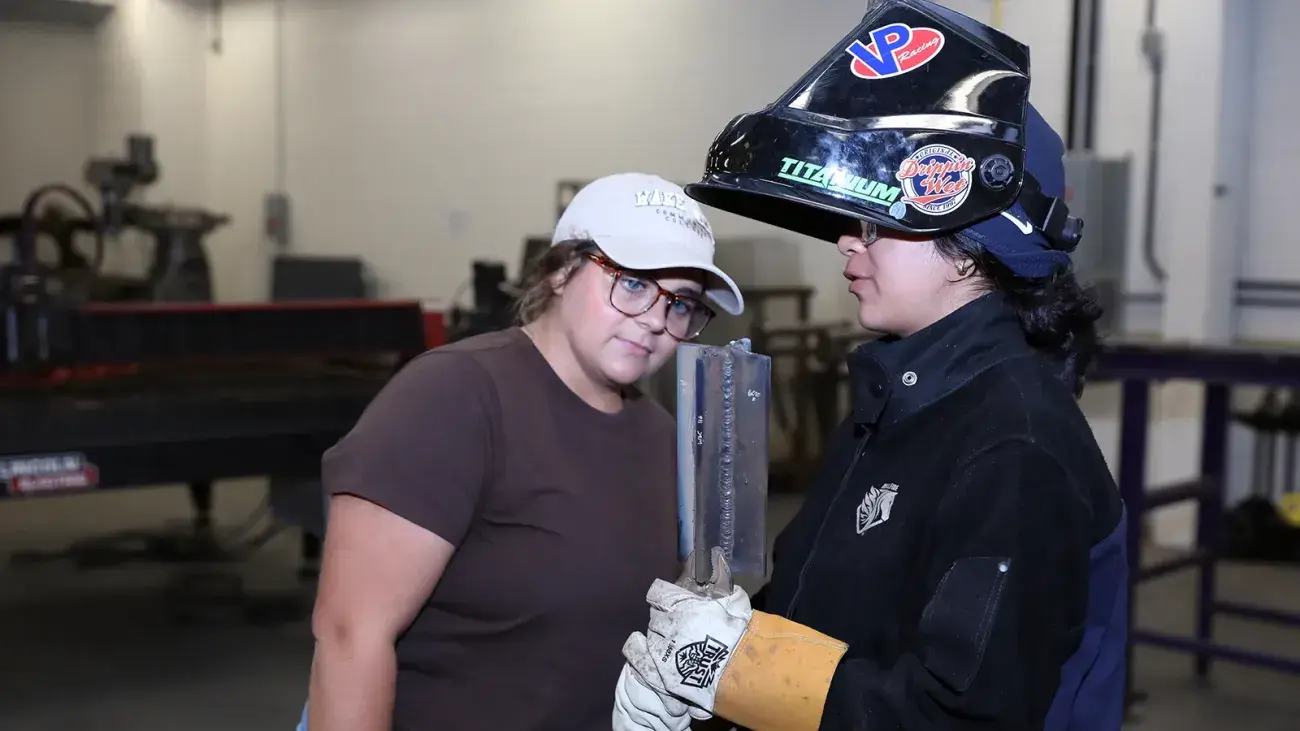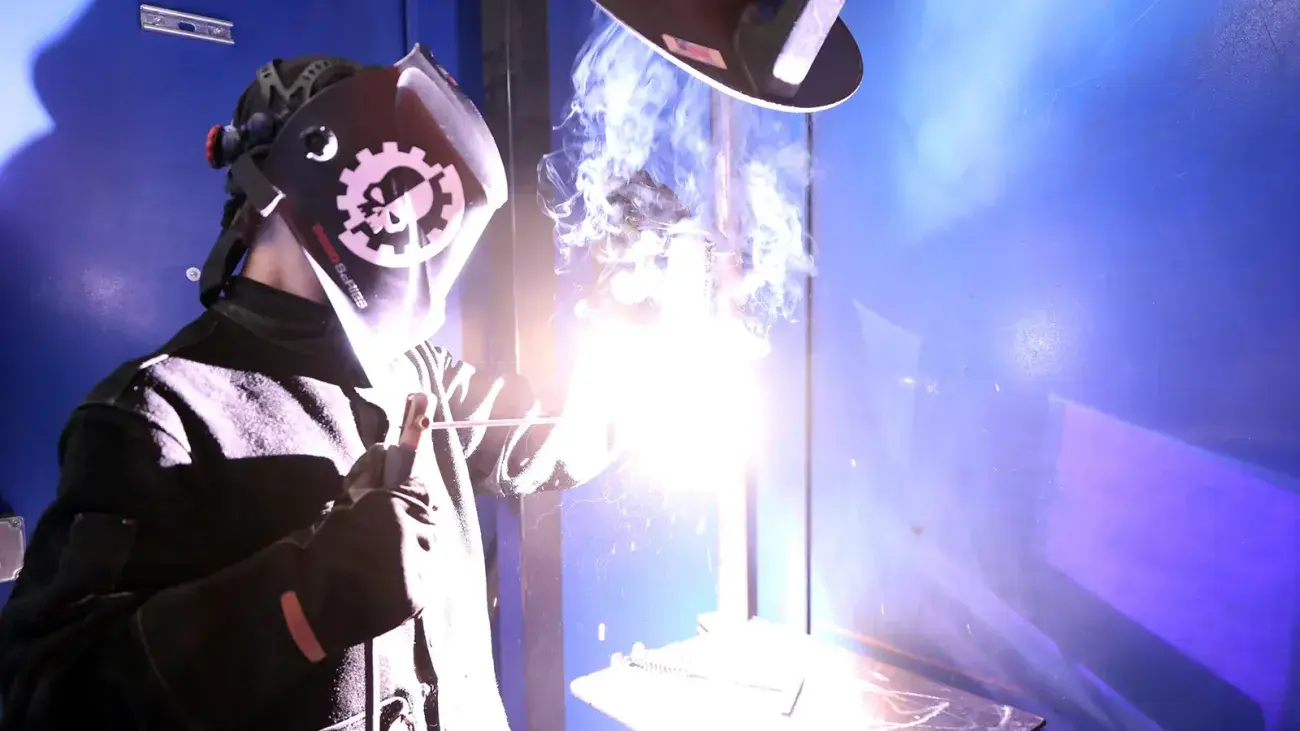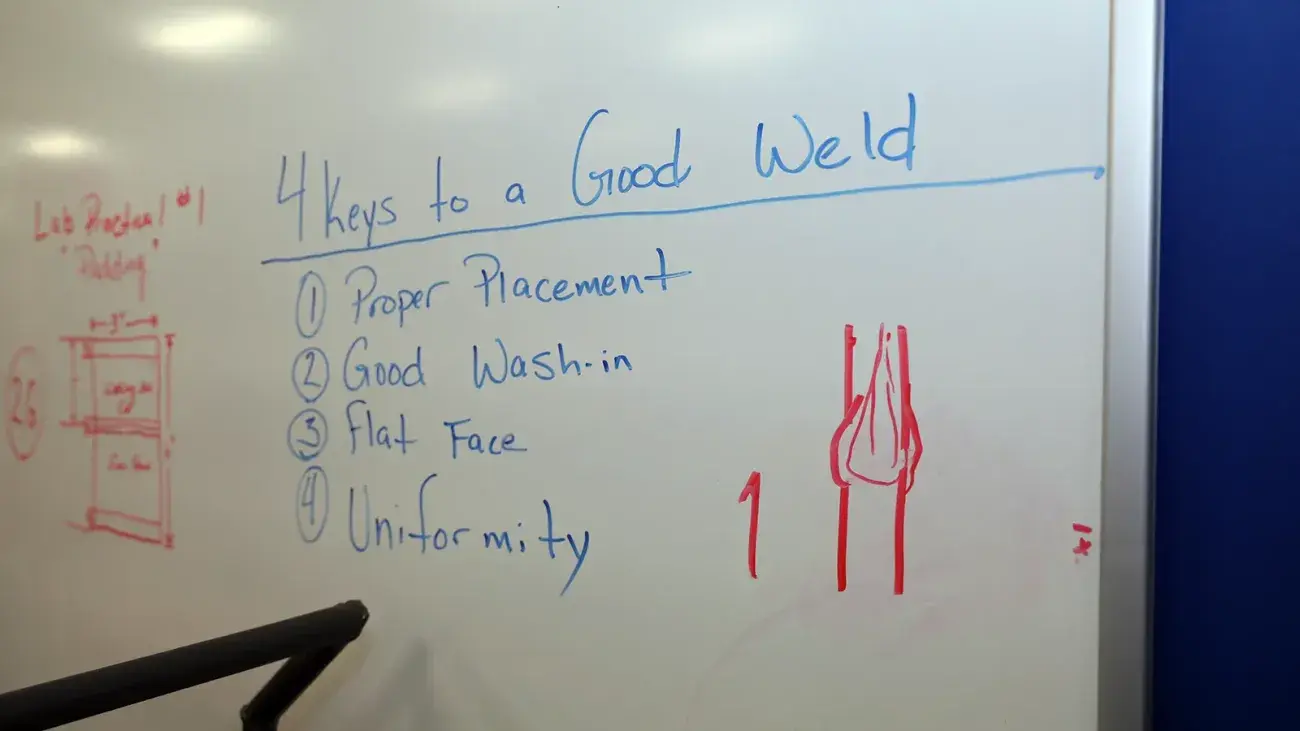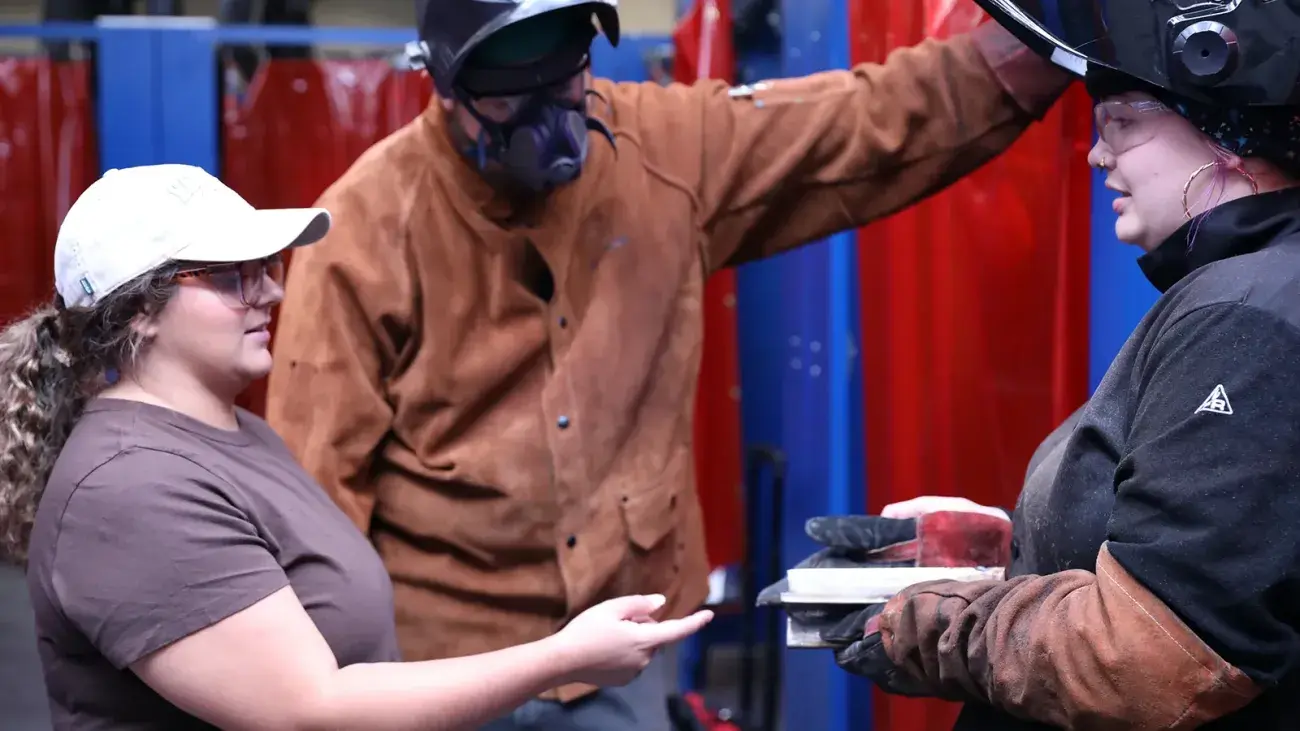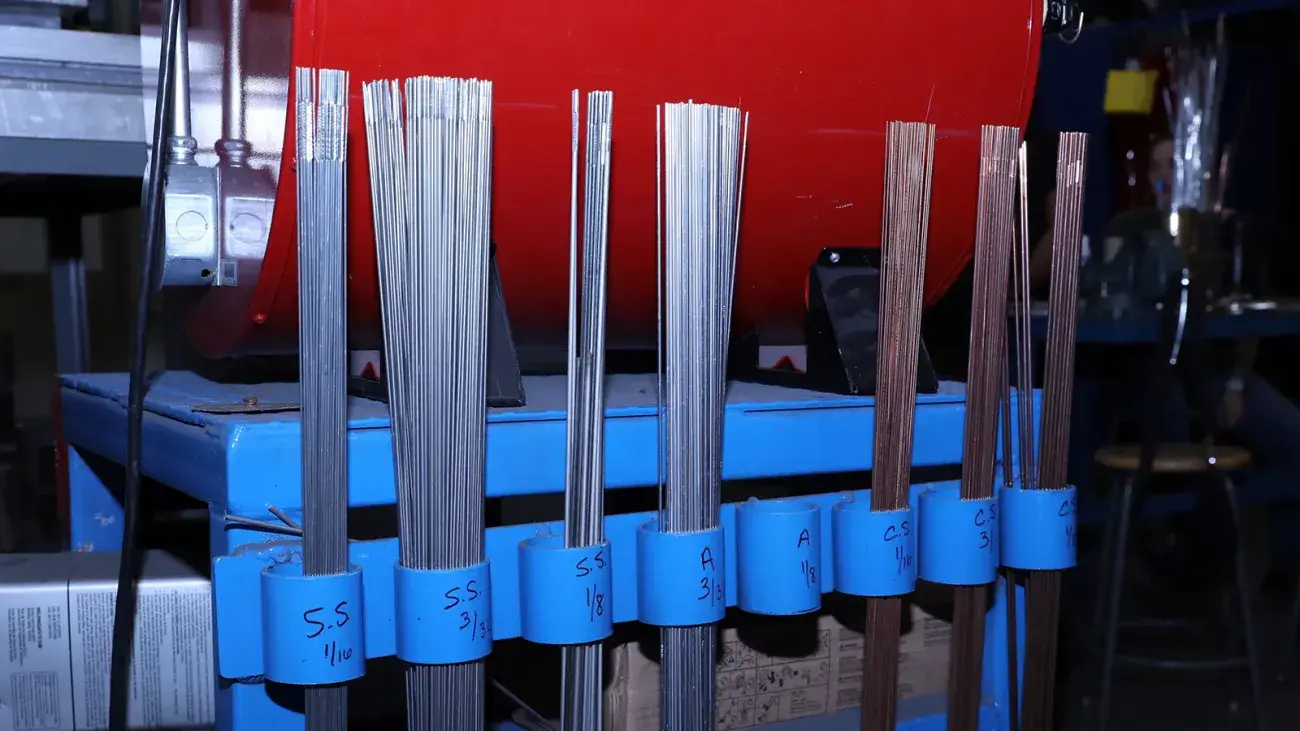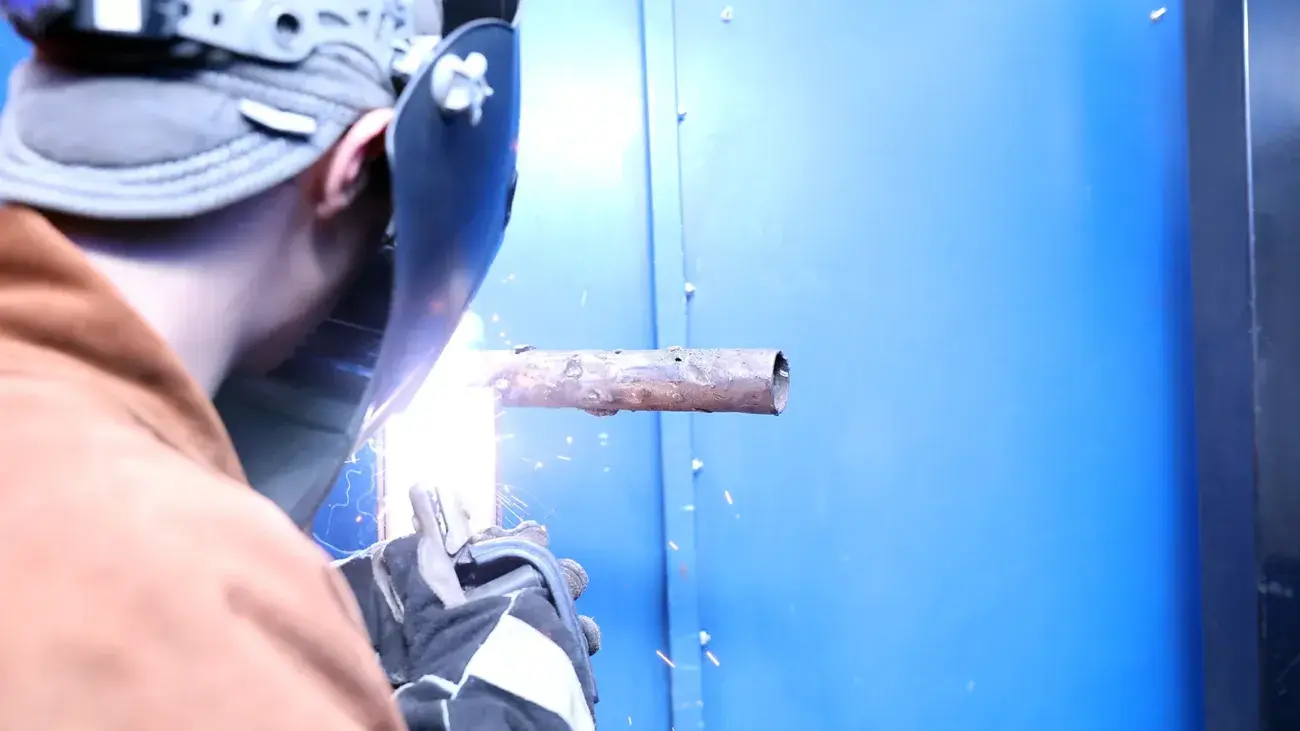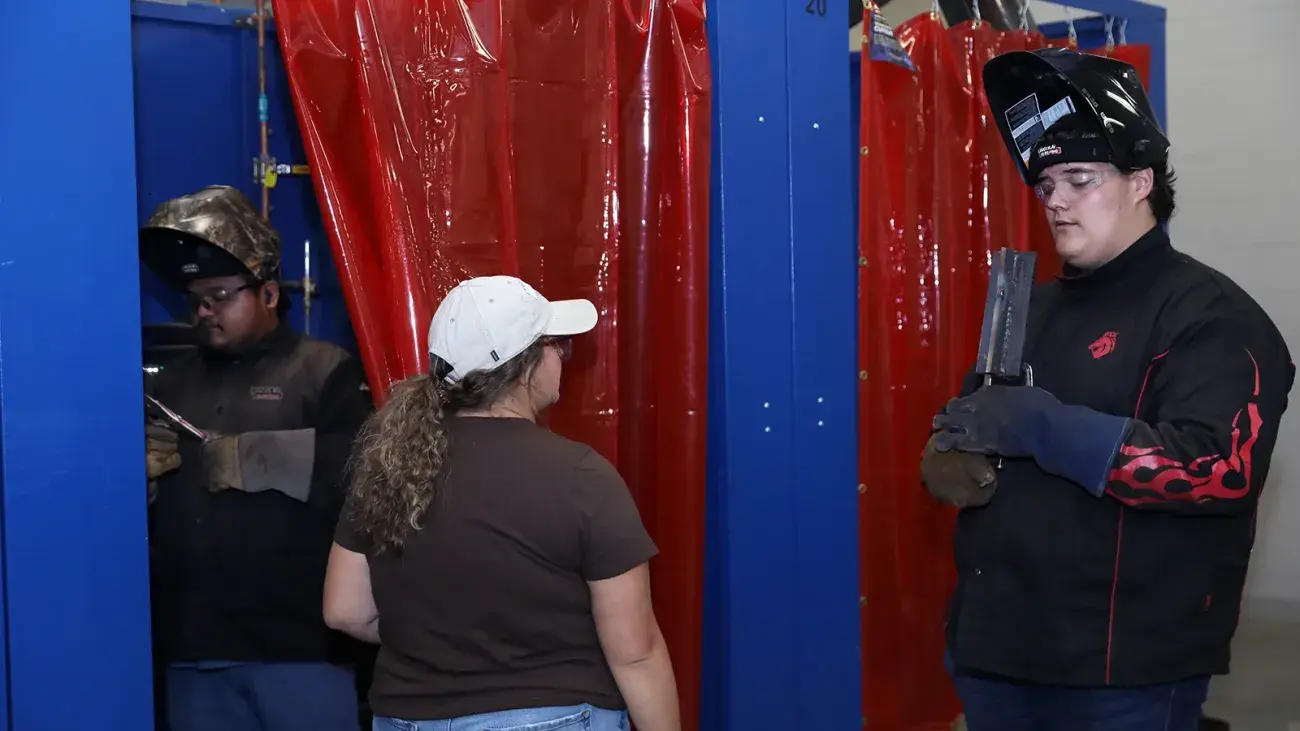Faculty Spotlight
Welding Technology
Forging a Bond With Students
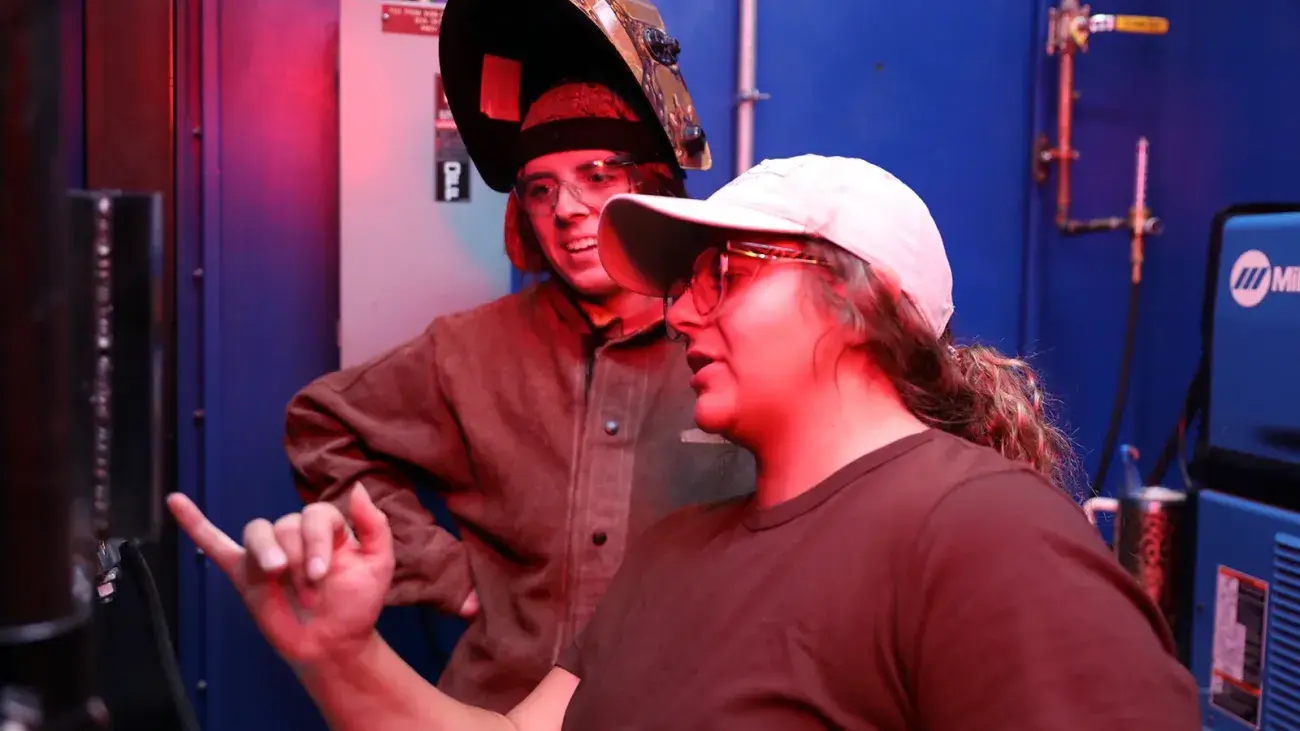
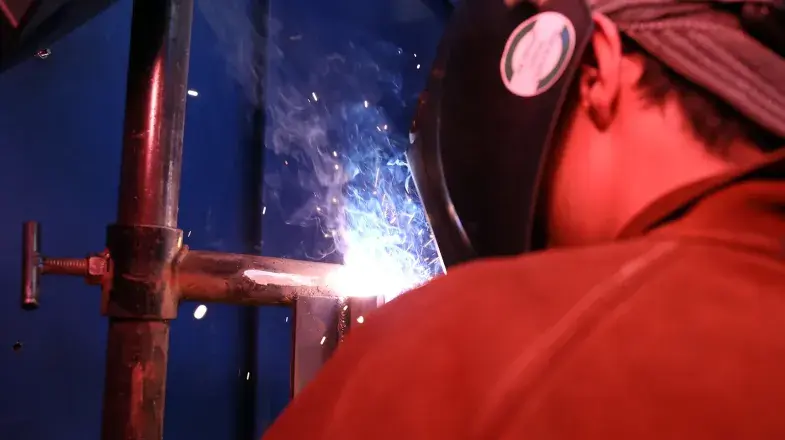
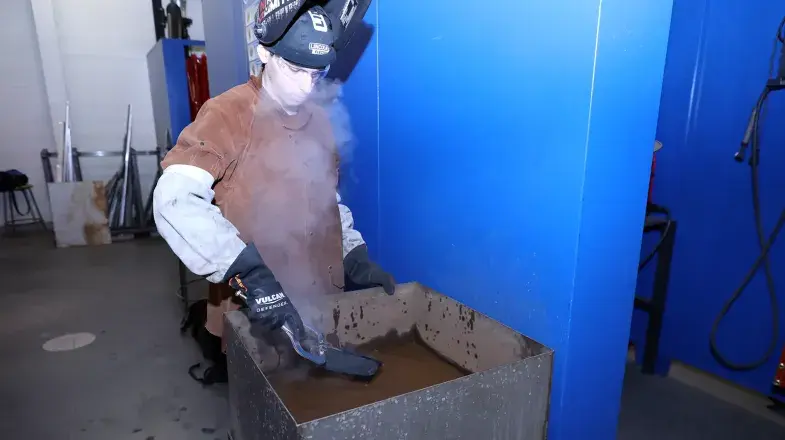
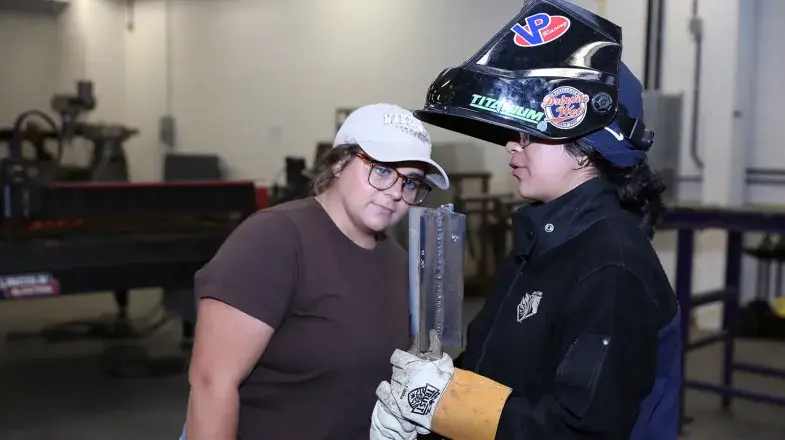
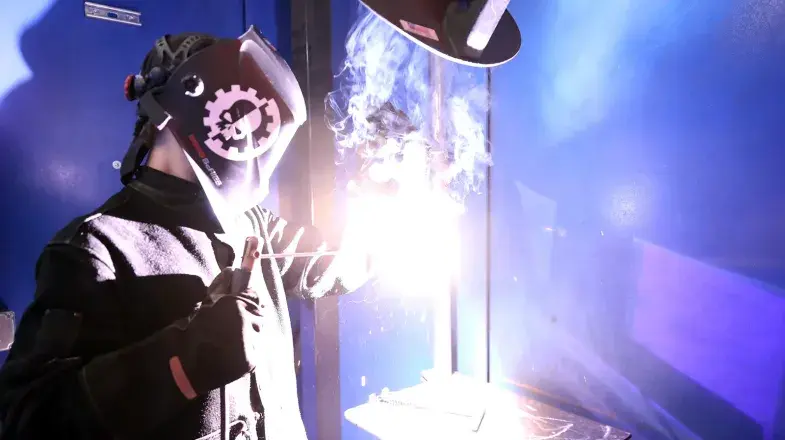
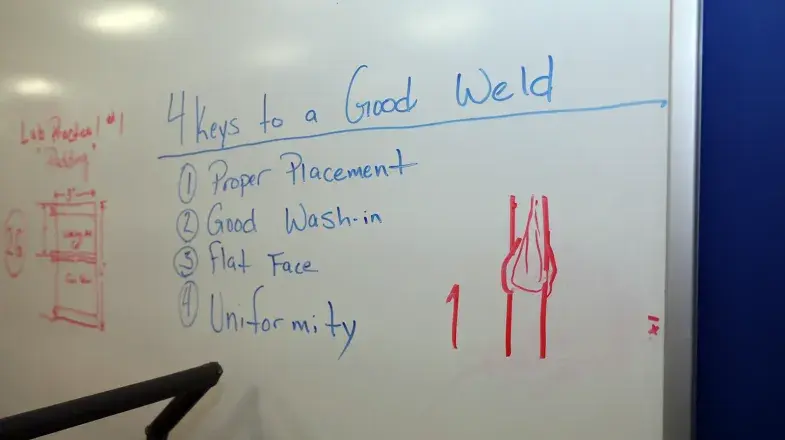
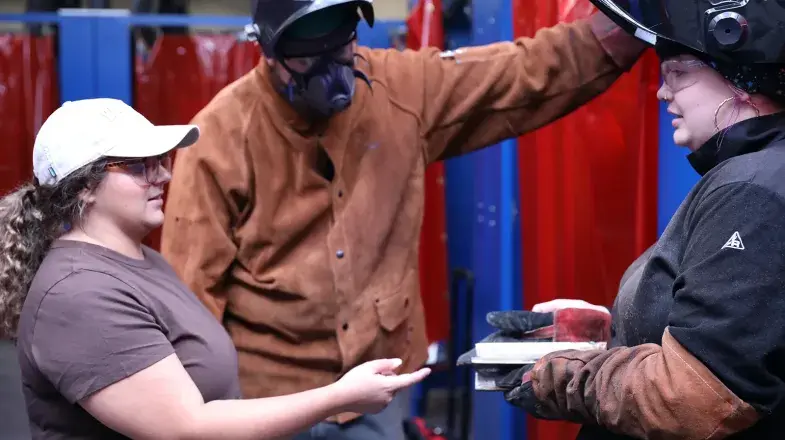
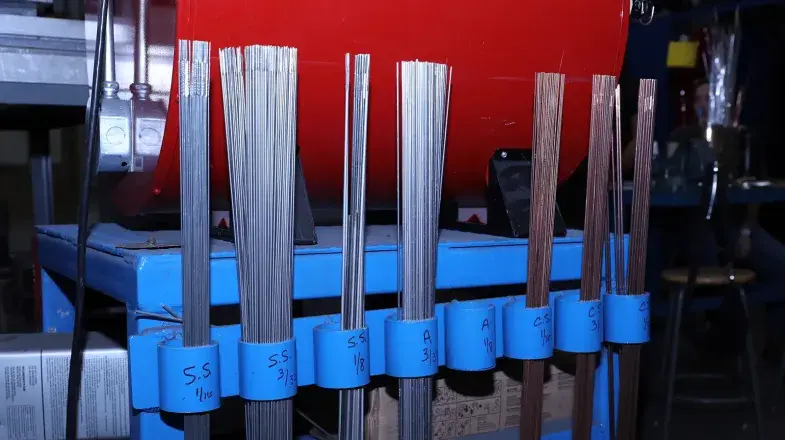
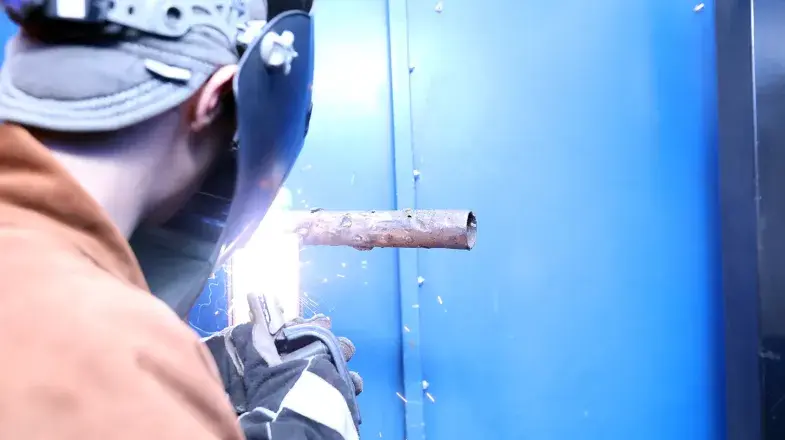
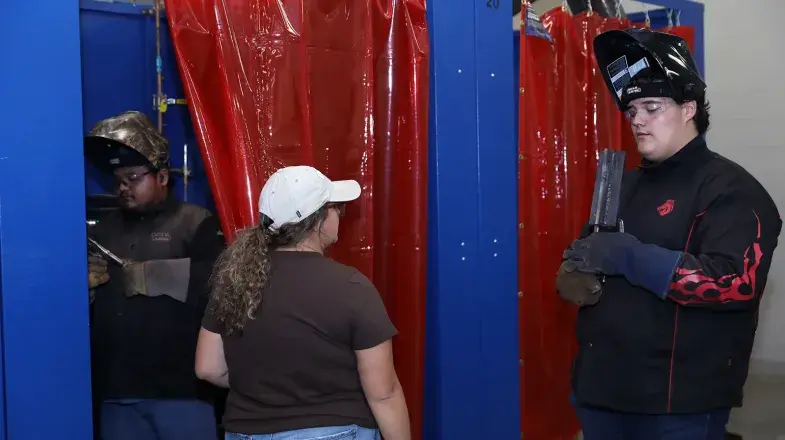
Molten metal is practically in Olivia Houle's blood.
Her father is a welder, as are her two uncles, and she learned the craft before she turned 10.
"I wanted to help with projects around the house, so my dad put me to work," she said. "I've always been kind of a tinkerer."
But while honing her skills at a vocational high school in her native Massachusetts, Houle was bitten by the research bug. She was part of a team that designed an experiment on bacteria that cause tooth decay. The experiment eventually made its way to the International Space Station.
The itch to conduct research prompted her to put down her welding torch and pursue a bachelor's degree in exercise science and even plan a career in developing prosthetics. She was fitting youngsters with prosthetic devices at Boston Children's Hospital when Epic Games transferred her boyfriend to its headquarters near Raleigh, prompting her to move to North Carolina.
Houle looked at working at one of the region's health systems to continue her prosthetics work. But she wasn't impressed with the salaries they offered and began considering returning to welding as a career. Her boyfriend had attended an open house at Wake Tech to check out the Welding Technology program for her, where he also connected with the Simulation & Game Development program and later landed an adjunct teaching job.
Welding Technology Program Director Russell Wahrman says that, despite Houle's young age, he recognized immediately that she would be an asset as an instructor. Her education, experience in heavy military welding and years of involvement with SkillsUSA, a national workforce development organization for students in skilled trades programs, stood out, he notes.
Houle also had worked as a long-term substitute teacher for a high school welding class while in college, giving her previous teaching experience. She says the idea of once again teaching the skills she's loved since childhood appealed to her.
"I like being passionate about something and being able to share it with people," she said.
She now teaches dual-enrolled high school students at Vernon Malone College and Career Academy during the day and a night class at Scott Northern Wake Campus for adult students.
"I'm glad to have the balance of both," she said. "I have some high school students for multiple years, so I see them grow as welders and as people. With the older students, I see more of their backgrounds and how welding fits with that."
As students in her night class practice vertical welds on metal pipes, she wanders among their booths to inspect the work and provide tips on improving technique. She also discusses a range of topics with the students – some several years older than her – from how to get funky smells out of welding jackets to what to eat if you have an iron deficiency.
"I want them to know how and why things work – or don't," she said. "I leave them a little breadcrumb trail, but they figure things out on their own."
Joe Dousharm is working to add welding to his blacksmithing skills so he can produce ornate metalwork and sculptures. He says Houle is good at helping students grasp abstract concepts.
"Sometimes, you have trouble envisioning how it works, but she can explain the process in different ways," he said.
Tyler Potter says she's inspired by Houle's confidence and easy-going attitude as a woman in a male-dominated industry.
"It's scary not knowing what to expect out in the field," Potter said. "But she's been doing it for years now, which gives us an example to follow."
Noah Gillespie gets advice from Houle both at Vernon Malone and in her night class, where he's trying to get a jump on a Welding Technology AAS degree.
"She's turned us into the people we are," he said of his class at Vernon Malone. "She has us thinking ahead – about careers and not just what's going on now."
In addition to teaching days and night, Houle is working on becoming a Certified Welding Inspector and taking prerequisite classes so she can pursue a master's degree in Welding Engineering. Even with a master's degree, she says she likely will continue teaching.
"I want to stay more on the education side of things as the industry evolves," she said. "The best way to prepare people for the workforce is to stay at the forefront of technology."
